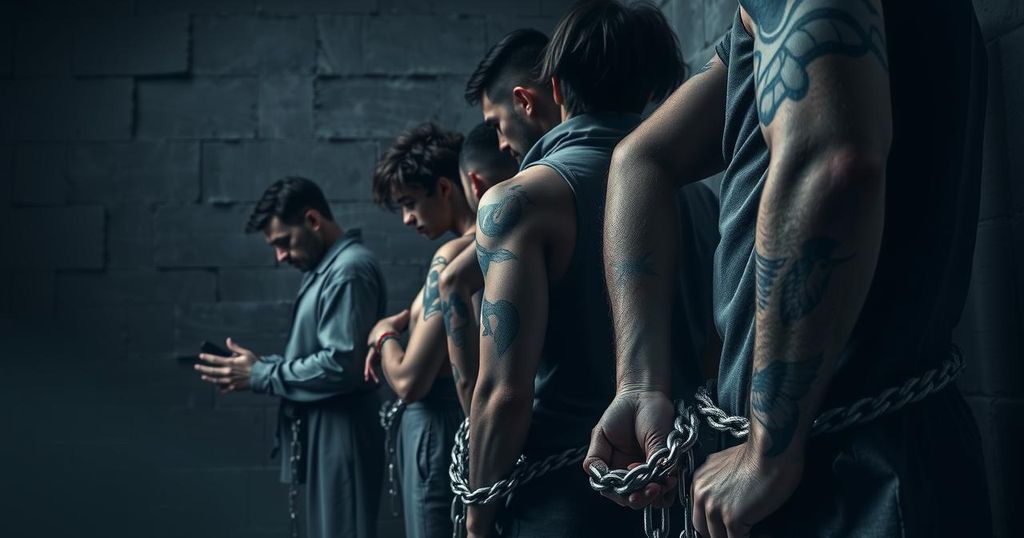Alleged Gang Members Deported to El Salvador: A Closer Examination of Selected Cases
Over 200 alleged gang members have been deported from the U.S. to a mega-prison in El Salvador, with many lacking criminal records. Families contest accusations of gang affiliations and fear for their loved ones’ safety. Specific cases highlight the impact of deportation policies and raise concerns about evidence used in designating individuals as gang members.
The Trump administration has recently deported over 200 alleged gang members to El Salvador, specifically to a notorious mega-prison. While officials from U.S. Immigration and Customs Enforcement (ICE) assert that many deported do not have criminal records in the United States, they argue that this highlights a potential threat these individuals may pose. Family members and lawyers of the deported individuals contest the gang affiliations, raising fears for their loved ones’ safety in the prisons.
Among the individuals deported is Maiker Espinoza Escalona, who was apprehended while seeking asylum in the United States. His family refutes allegations of gang involvement, emphasizing his aspirations to pursue work as a barber in the United States and denying any ties to the alleged gang Tren de Aragua, suggesting he and his partner were targeted due to their tattoos.
Jose Franco Caraballo Tiapa, another deportee, was arrested during a routine ICE check-in after initially applying for asylum and subsequently released. His wife claims that he has no criminal history and provided documentation confirming his court dates. However, he was detained unexpectedly, raising concerns about the legality of his deportation to El Salvador under the Alien Enemies Act.
Francisco Garcia Casique, seeking a better life post-deportation, similarly had no criminal record throughout his time in the U.S. His brother, expressing despair, detailed how Garcia Casique sought to support his family with his skills as a barber.
Kilmar Armando Abrego Garcia was deported due to an “administrative error.” Although Abrego Garcia had been granted protected status in the U.S., he was claimed to be a member of MS-13. His attorneys assert that there is no evidence supporting these allegations, and they maintain that he is not associated with any gangs.
Lastly, Jerce Reyes Barrios was a professional soccer player who entered the U.S. legally and was accused of gang affiliations based on a tattoo. His attorney contended that there is no basis for the accusations, as the tattoo in question represents his admiration for a soccer team. Despite a lack of criminal history, the deportations have raised concerns about the reliability of the classification of individual gang ties.
The aforementioned cases illustrate the complexities and potential injustices surrounding immigration enforcement actions against alleged gang members, raising critical questions about evidence and official designations in such deportations.
The recent deportation actions by the Trump administration, targeting alleged gang members, have sparked significant concern regarding due process and the validity of gang association claims. Cases like those of Maiker Espinoza Escalona, Jose Franco Caraballo Tiapa, Francisco Garcia Casique, Kilmar Armando Abrego Garcia, and Jerce Reyes Barrios reveal the impact of these policies on individuals lacking criminal records. Legal advocates and family members continue to challenge these deportations, emphasizing the need for evidence before labeling individuals as gang affiliates. This situation underscores the broader implications of targeted immigration enforcement amidst claims of human rights violations.
Original Source: abcnews.go.com




Post Comment